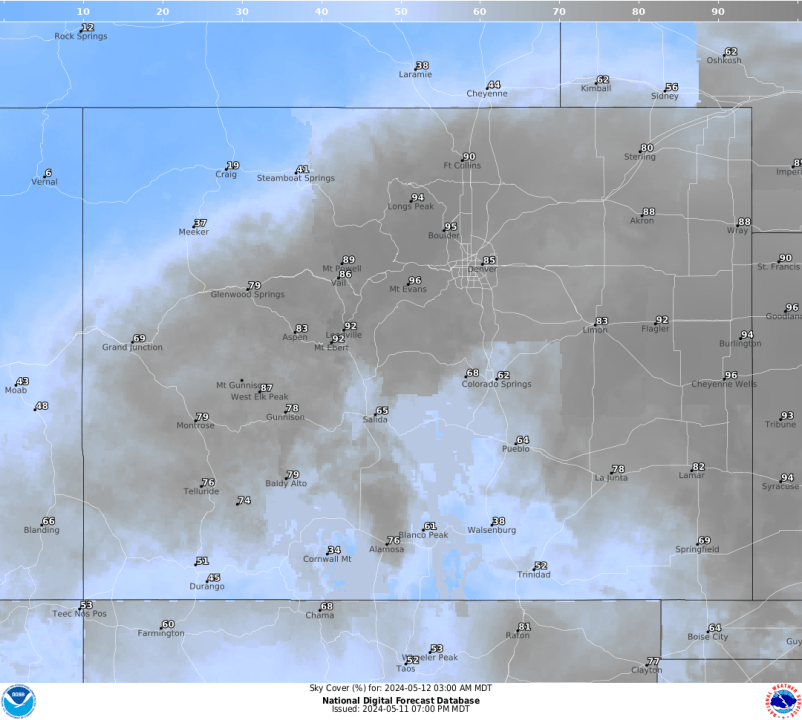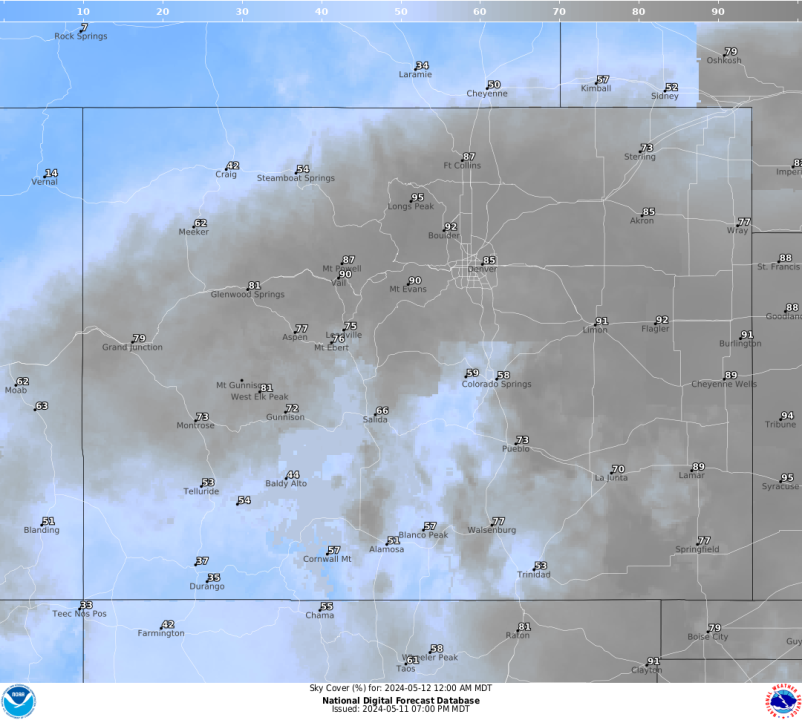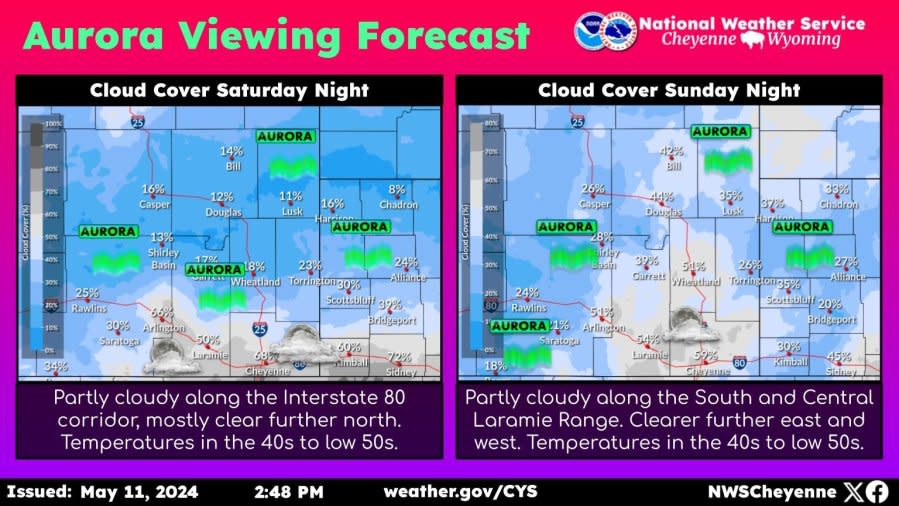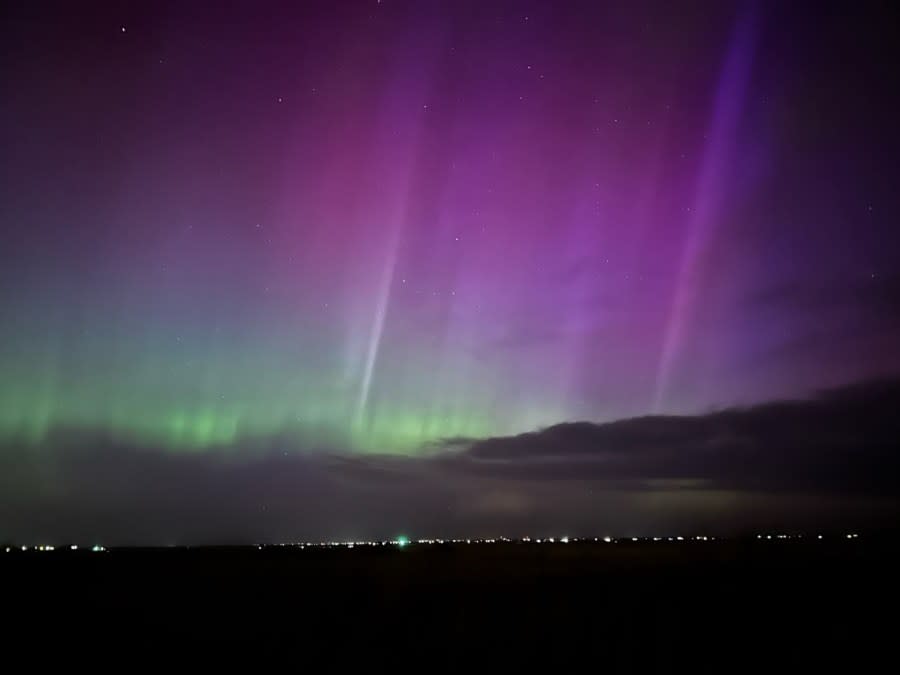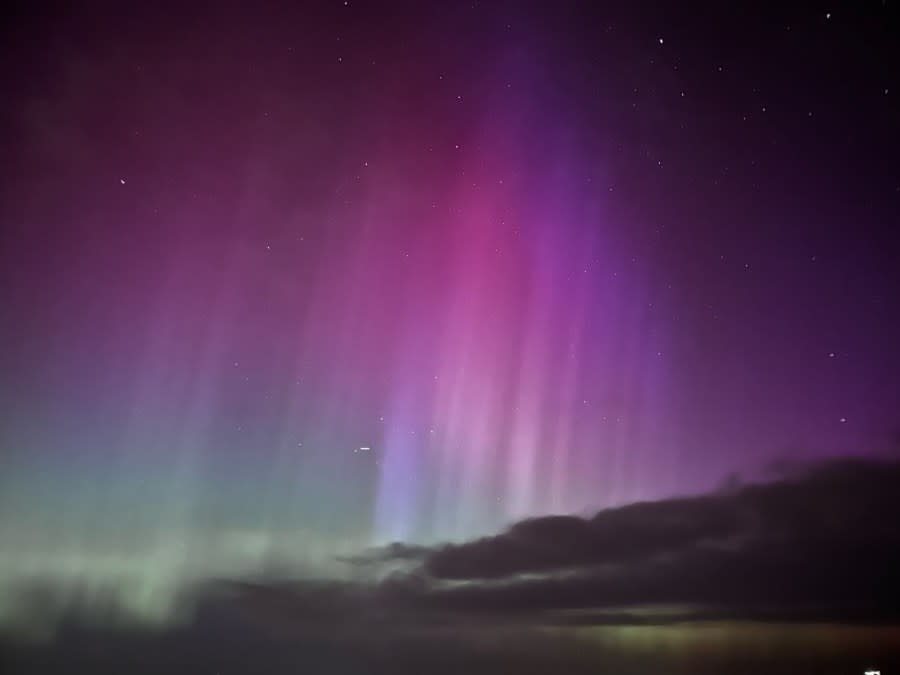Could Colorado see aurora borealis more this weekend?
DENVER (KDVR) — Coloradans were treated to a rare sight Friday night thanks to an extreme G5 geomagnetic storm.
A G5 solar storm hasn’t occurred in over 20 years — the last time was in 2003, and it caused power grid issues in Sweden and South Africa.
Aurora seen around Denver, across Colorado
It’s a once-in-a-lifetime sight for many people, and luckily much of the U.S. will get a chance to see the northern lights again Saturday night.
Will Colorado see aurora borealis again on Saturday?
The good news is, according to the NOAA’s Aurora Forecast, most areas that saw the lights Friday, including Colorado, will have another chance to watch them on Saturday.
“The chances are good because we’re expecting this level of activity to continue into Sunday and through Sunday,” Robert Steenburgh, a space scientist with NOAA, explained to FOX31. “Monday we’re expecting it to ratchet down a little bit, it’ll still be decent.”
He said Saturday night is shaping up to be a repeat performance, but the bad news is much of Colorado is expected to be cloudy Saturday night.
“We are expecting another nice show tonight if you can get out from under the clouds, really that’s going to be the key is avoiding the clouds and light pollution,” Steenburgh said.
Low clouds could wipe out chances to see aurora, but some areas might get some pockets of clear sky.
Here is the National Weather Service cloud cover forecast for Saturday night:
The National Weather Service said the clearest nearby skies will be north of Cheyenne, which is about an hour and a half drive north of Denver.
UPDATE: Aurora borealis seen overnight Saturday to Sunday
Viewer Chet Reisdorph shared images taken around 2:30 a.m. Sunday of the northern lights as seen from Elbert County.
Aurora borealis seen from Elbert County, Colorado on May 12, 2024 around 2:30 a.m. (Chet Reisdorph) Aurora borealis seen from Elbert County, Colorado on May 12, 2024 around 2:30 a.m. (Chet Reisdorph)
What causes aurora borealis?
Steenburgh said that geomagnetic storms are a result of energy from the sun.
The solar cycle is 11 years long, and Steenburgh said the peak is coming up, so there are a lot of sunspots, which produce solar flares and coronal mass ejections, which he describes as “parts of the solar atmosphere that are blown off in the interplanetary space.”
Sometimes, Steenburgh said, “blobs of plasma from the sun reach Earth and interact with our magnetic field, and that’s what we’re experiencing and that’s what drives the geomagnetic storms.”
The result is streaks of bright colors that light up the sky, also known as northern lights or aurora borealis.
“The most noticeable thing, and really the only visible manifestation of space weather, is the aurora,” Steenburgh said.
How do geomagnetic storms affect us on Earth?
Other impacts aren’t exactly visible; it impacts power grids, GPS systems, communications and more.
“Because these blobs slab into our magnetosphere, the magnetic field that surrounds the earth, that field moves, and when it moves, it induces current on power lines and railroad tracks and pipelines,” Steenburgh said. “It also affects communications, it can affect long-distance communications that use a part of our atmosphere called the ionosphere, and that gets riled up during these storms so it’s harder to make those transmissions. And similarly, signals from the GPS satellites have a hard time getting through the ionosphere because it’s so turbulent, and that can cause receivers on the ground to lose lock.”
That’s why space weather forecasters notify the necessary agencies and companies about geomagnetic storms ahead of time. Overall though, Steenburgh said most people on Earth will not have anything to worry about other than whether or not they can see the aurora.
For the latest news, weather, sports, and streaming video, head to FOX31 Denver.
